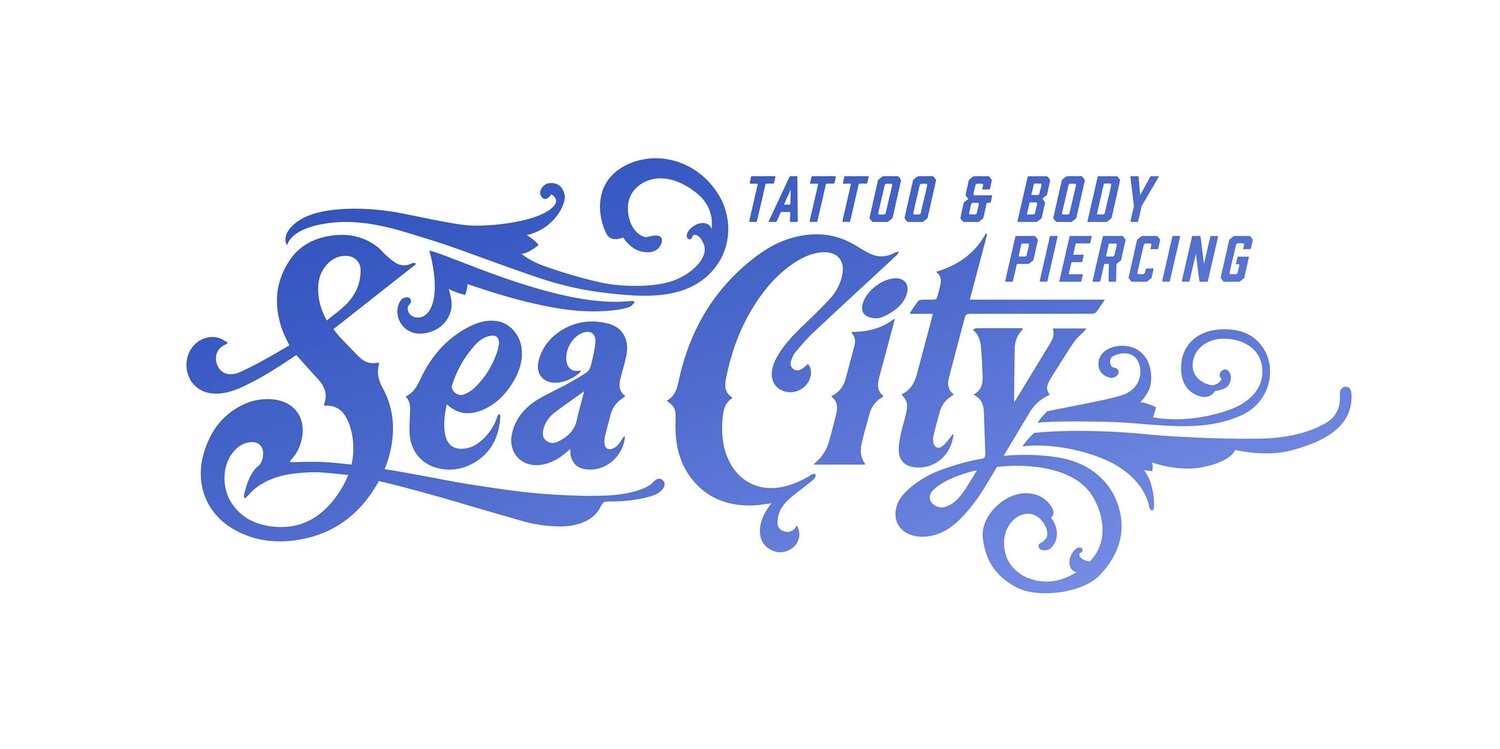Piercing Aftercare Instructions
How do I take care of my new piercing?
Wash hands thoroughly, before wiping away dried secretions with a Q-Tip saturated with sterile saline.
Oral Piercings require the use of mouthwash with no alcohol (Biotene is an option). Rinse after eating, drinking, kissing, etc. Really after anything that comes into contact with your mouth that isn’t your saliva or water.
When engaging in oral sex, protection should be used. A condom or dental dam is suggested depending on the body part.
With a fresh tongue piercing try to let your tongue rest as much as possible.
Skip sticky foods, chewing gum, spicy, salty, acidic or hot foods as they can irritate the new piercing.
To keep swelling down sip cold water, eat ice cream or other cold and frozen foods.
Nipples require support of a tight (not too tight) cotton shirt or sports bra. This can provide protection and comfort, especially for sleeping.
Be careful of washcloths, loofahs, terry cloths, etc. The tiny loops can catch the jewelry and pull it out.
Try not to sleep on new piercings as it can cause irritation and migration of a straight piercing.
Genital Piercings require the following:
Genital Piercings—especially Prince Alberts, Ampallangs, and Apadravyas—can bleed freely for the first few days. Be prepared. Wearing a pantyliner is suggested.
Urinate after using soap to clean any piercing that is near the urethra.
Wash your hands before touching on, or near a healing piercing.
In most cases you can engage in sexual activity as soon as you feel ready, but maintaining hygiene and avoiding trauma are vital. All sexual activities should be gentle during the healing period, if it hurts stop engaging in the activity.
Use barriers such as condoms, dental dams, and waterproof bandages, etc. to avoid contact with your partners’ body fluids, even in monogamous relationships.
Use clean and disposable barriers on sex toys.
Use a new container of water-based lubricant; do not use saliva or baby oil.
After sex, an additional saline soak or clean water rinse is suggested.
The following items should not be done with any piercing:
Touching your new piercing.
Twisting the jewelry as it harms the new fistula that is forming.
Using rubbing alcohol, surgical scrubs, or hydrogen peroxide on the piercing. Doing so will kill the new cells forming the fistula.
Swimming in pools, hot tubs, rivers, lakes, ponds and oceans. There are a lot of bacteria that can cause harm to a new piercing.
When bathing in a bath it is suggested to clean the bathtub first with a bleach water solution (1/3 cup of bleach to a gallon of water) and then rinse the tub thoroughly before bathing.
How long will it take to heal?
Most piercings take 6-8 weeks to heal. The following piercings take longer:
Cartilage piercings take 6-9 months to heal.
Surface Piercings and Nipples take 9 months to a year to heal.
Genital Piercing heal times vary; the piercer will inform you before the service.
When can I change my jewelry?
Nose Piercings
If pierced with a nosescrew come in after a month to get it trimmed. Trimming the jewelry will help prevent irritation bumps from jewelry that is too long.
After 2 months you can switch out to a seamless ring or clicker.
Oral Piercings
After the initial swelling goes down come in to get shorter jewelry.
Then after its healed you can change out your jewelry whenever you want.
Other Piercings
After the healing is done; the longer you wait the better it will be.
